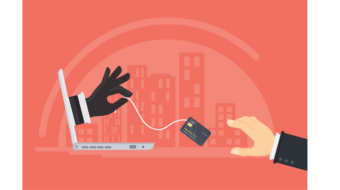How to Protect Yourself After a Data Hack
Posted: September 15, 2017 | By: Brian Posalski
When your personal information is put at risk, what can you do? 
A data hack is just what it sounds like—hackers infiltrate a company’s systems and steal important information. Birth dates, medical records, and Social Security Numbers are some of the most crucial things that are stolen.
The Equifax data breach is one of the largest on record. Among those affected are 143 million Americans—so if you have a credit report, you might be one of them.
The Equifax Data Breach
Equifax is one of the United States’ three major credit-reporting agencies. The company, which serves over 820 million consumers, was hacked in May 2017. This data breach continued from mid-May through July 2017, until Equifax discovered the issue on July 29. They’ve since addressed the issue, but unfortunately, the problems don’t stop there.
During the data breach, hackers stole names, Social Security Numbers, birth dates, addresses, and driver’s license numbers. Any of this information could help criminals to steal a person’s identity.
How Identity Theft May Affect You
Identity theft is a surprisingly common issue that can impact many areas of your life. In 2016 alone, there were about 17 million reported cases of identity theft. With just a few pieces of your personal information, criminals can easily disrupt your personal and financial affairs. Some common examples of identity theft include:
- Criminals applying for loan and credit card applications under your name,
- Withdrawing from your bank accounts,
- Creating bank accounts under your name, and
- Taking over your online accounts.
What You Should Do Next
Continue to monitor your credit reports and your accounts. Discrepancies may take time to appear—smart criminals are patient. It’s not uncommon for them to wait awhile before using your stolen information.
Here’s what you can do to protect yourself:
- Set up fraud alerts to know if someone is opening an account in your name.
- Consider placing credit freezes with the 3 major credit-reporting agencies: Equifax, Experian and TransUnion. A credit freeze restricts access to credit reports, making it difficult for identity thieves to open new accounts in your name.
- Check your accounts for suspicious or unusual activity, including bank and other financial accounts, email, social media, etc.
- If you receive emails, text messages, phone calls or other media stating your information has been compromised, log into each account to verify rather than clicking through emails and texts. These may be “phishing” attempts, where hackers try to obtain additional information from you.
- The Federal Trade Commission (FTC) has outlined steps you can take if you believe you’ve been affected by the data breach.
Take Action to Protect Yourself
Many companies provide helpful services that offer protection against identity theft and assistance in the event of a data hack.
In fact, in response to their data breach, Equifax now offers complimentary identity theft protection and credit file monitoring services, called TrustedID Premier.
Equifax Trusted ID Premier Benefits:
- $1M identity theft insurance Equifax Credit Report copies
- 3-bureau credit file monitoring
- Social Security Number monitoring
But they’re not the only ones. Lifelock has been a key player in the fight against identity theft and offers several membership-based packages. Ultimate Plus costs $29.99 per month and offers the most coverage of all their plans.
Lifelock Ultimate Plus Benefits:
- Million Dollar Protection™ Package: Up to $1 million reimbursement for stolen funds, personal expense compensation, coverage for lawyers & experts
- Credit monitoring: 3 bureaus
- Bank account & credit card activity alerts
That said, Youngevity Protect offers the most comprehensive identity theft protection—even more comprehensive than Lifelock or Equifax—also for $29.99 per month.
Youngevity Protect Benefits include:
- $1M in coverage
- 3-bureau credit file monitoring
- Data breach notifications
- Bank account & credit card activity alerts
- Antivirus/antispyware software
- Safepay online shopping protection
- Social Security monitoring
- Fictitious identity monitoring
- 100% satisfaction restoration in the event of a breach
What is Youngevity Protect?
Youngevity Protect offers the highest level of identity protection under two levels:
- Detecting unauthorized use of personal information and
- Giving members the advanced tools they need to defend their identities.
The program offers additional benefits that are not offered by Lifelock, including a Family Management Portal for easy access, antivirus/anti-spyware software to detect threats, a digital file shredder to safely destroy files, and much more. More details at: YoungevityProtect.com
Get the Protection You and Your Family Deserve
In light of the Equifax crisis, safeguarding your identity is more important than ever. Although technology is always advancing, criminals continue to find ways to access confidential information. Anyone could be at risk.
Don’t wait until you’re affected by a data hack—give yourself and your family peace of mind by choosing the identity protection program that fits your needs.
Youngevity Protect offers comprehensive plans to address a variety of concerns. To learn more about Youngevity Protect and the benefits it offers, visit YoungevityProtect.com and choose your plan today.
Posted in:

